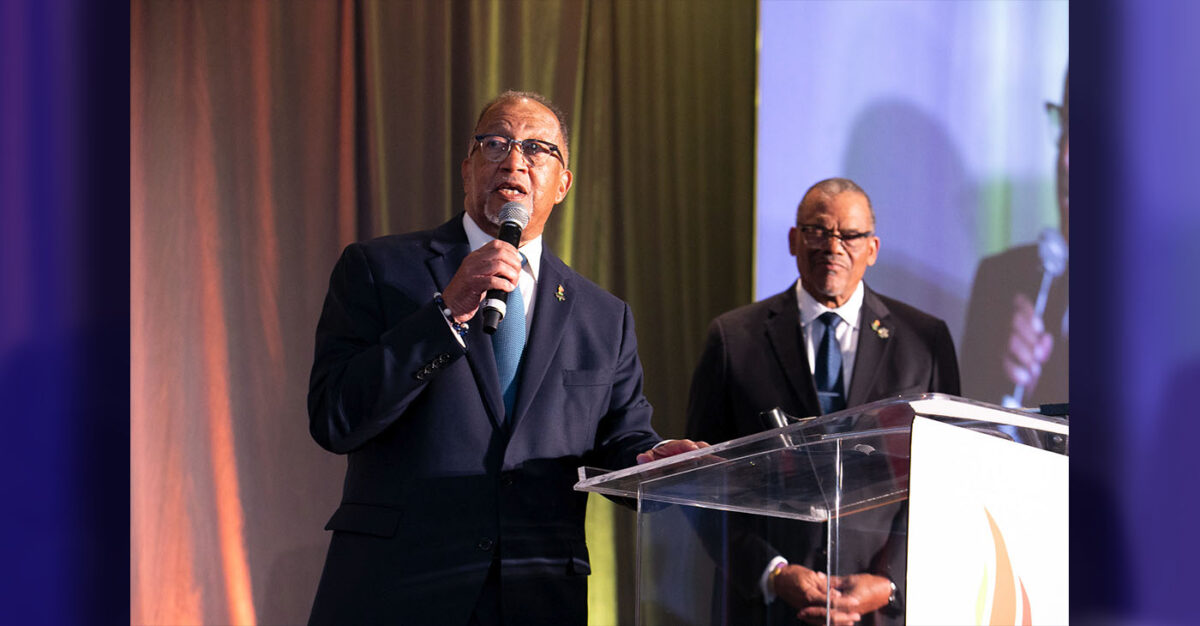- BlackVoter.Org
- Posts
- BlackVoter.Org
BlackVoter.Org


In a curious twist, Jackie Robinson’s military legacy recently disappeared from the Pentagon's website, only to reappear hours later, reigniting discussions about historical representation. Amid the Trump administration's push to remove references to diversity, numerous pages celebrating African American figures have inexplicably gone missing.
Robinson’s biography, detailing his time in a segregated Army unit during World War II and his groundbreaking impact on baseball, faced this unprecedented hide-and-seek. The disappearance sparked outcry from lawmakers, including Senator Tim Kaine and Representative Yvette Clarke, who condemned the action as an attempt to erase Black history.
Clarke emphasized that history remains unchanged, highlighting the enduring contributions of African Americans to the nation. This situation sheds light on ongoing debates about historical representation and the importance of recognizing all facets of American history, particularly those of marginalized communities.

In a powerful piece for Rebellious Magazine, Michelle Duster calls out the systemic oppression plaguing communities of color, particularly Black women, during a political climate that seems intent on erasing their contributions and existence. Amidst hostile policies and a wave of disinformation, Duster insists that Black women don’t need permission to thrive—they are done waiting.
The article highlights the resilience and ingenuity of Black communities, emphasizing the importance of supporting Black-owned businesses and cultivating self-sufficiency. With a defiant #WeDone mantra, Duster encourages Black women to reclaim their narratives and resources, celebrating their essential role in America's story.
As she notes, no matter how hard external forces try to diminish them, Black women will continue to innovate, create, and love unapologetically. This message resonates as a rallying cry for empowerment and a bold stand against oppressive structures.

In a stirring address at Howard University, Dr. Benjamin F.
Chavis Jr., President of the National Newspaper Publishers Association (NNPA), underscored the crucial role of the Black Press amid rising threats of extremism.
Celebrating the 198th anniversary of Black journalism, Chavis emphasized the need for unity and proactive action within Black communities as they face challenges like voting rights erosion and economic instability. He called for a renewed partnership among Black media, churches, and universities to mobilize for the largest Black voter turnout in history ahead of the 2026 elections.
Highlighting the historic power of collective action, Chavis encouraged the Black Press to confront misinformation and advocate for civil rights, positing that it must be a leader in shaping the future, not just a reactive force. With determination in his voice, he reaffirmed the Black Press's commitment to expose injustices and amplify the voices of Black Americans.

Ben & Jerry’s is raising eyebrows with its claim that CEO David Stever was fired for promoting the company's progressive political agenda. In a legal battle against parent company Unilever, the iconic ice cream brand argues that the dismissal was not only wrongful but violated merger agreements that protect its social mission.
The company contends that Unilever attempted to silence its activism regarding critical social issues, including support for Palestinian refugees amid ongoing conflicts. In a bold move, Ben & Jerry’s is fighting back, accusing Unilever of “threatening” its staff and undermining its independence.
With a history of championing social change, Ben & Jerry’s has made headlines for flavors and statements supporting various causes. As the ice cream giant navigates this legal tumult, one thing is clear: its commitment to social justice remains as strong as its beloved ice cream.

In her thought-provoking piece, Star Parker explores how a movement originally aimed at civil rights and freedom for Black Americans has evolved into a focus on government dependency and welfare. She recounts a recent incident involving the Congressional Black Caucus, highlighting their dramatic support for Representative Al Green as he interrupted a Congressional session.
Parker argues this marks a shift from advocacy for justice toward an acceptance of expanding government programs like Medicaid, which she claims have strayed from their core purpose. With a sharp critique of current political leaders and the increasing burden of federal spending, she suggests that the essence of the Civil Rights Movement has been compromised.
Instead of fighting for personal liberties, it appears to be more about protecting and promoting government welfare programs. Parker calls for a return to the movement’s original ideals of freedom and justice, urging for accountability in how welfare systems are managed.

In a candid chat on Kylie Kelce's "Not Gonna Lie" podcast, Michelle Obama opened up about her disinterest in politics, emphasizing her commitment to her family. The former First Lady expressed relief at leaving the White House, stating that she wanted to protect her daughters, Malia and Sasha, from the relentless public scrutiny that comes with political life.
“I was so glad when we got out,” she confessed, firmly rejecting questions about a potential political run with a resolute “no.” It’s clear that Michelle values her daughters' freedom and privacy above all else, believing they’ve already made enough sacrifices during their childhood.
As she puts it, they’ve “served their time,” and returning to that spotlight is simply “unthinkable.” With a humor-infused “Nope,” she reassures listeners that she’s found her peace away from the political arena, with family taking priority over public life.